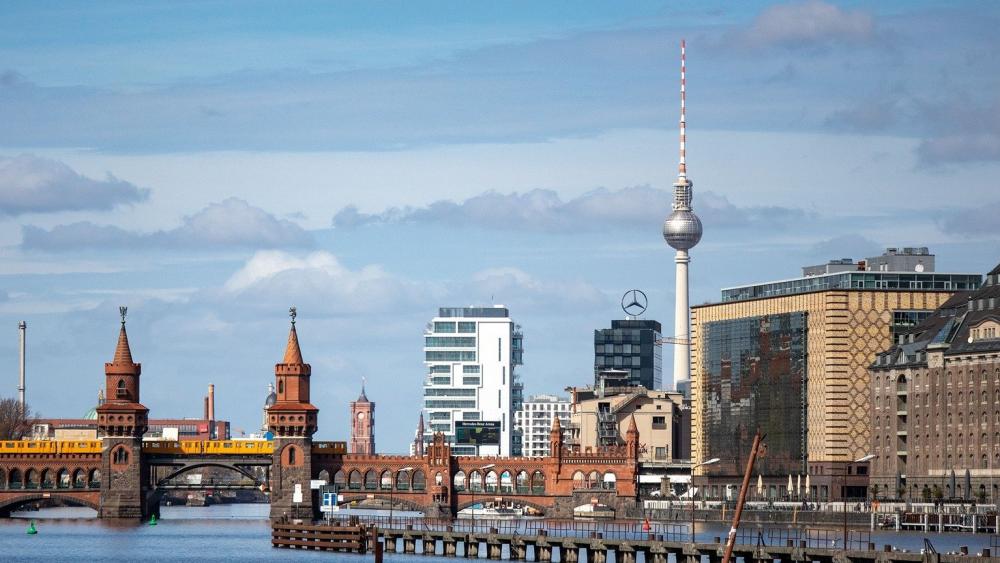
The science metropolis Berlin. | Photo: Werner März/Pixabay
The new network includes almost all non-university institutes and centers in the Berlin metropolitan area. It is intended to facilitate coordination between non-university research institutions and to provide a central point of contact for cooperation with Berlin’s universities and for engagement with stakeholders in society and politics. Like the Berlin University Alliance (BUA) – the association of Freie Universität Berlin, Humboldt-Universität zu Berlin, Technische Universität Berlin, and Charité - Universitätsmedizin Berlin – BR 50 will also provide a platform for the participating institutions to engage in ongoing dialogue.
The consortium includes representatives from all areas of scientific research. At the inaugural meeting held on February 18, 2020 at Max Liebermann Haus at the Brandenburg Gate, founding coordinators were chosen for the four sections: Prof. Dr. Thomas Sommer for Section 1 (Life Sciences), Prof. Dr. h.c. Jutta Allmendinger Ph.D. for Section 2 (Social Sciences and Humanities), Prof. Dr. Ulrich Panne for Section 3 (Natural Sciences) and Prof. Dr. Michael Hintermüller for Section 4 (Technology and Engineering).
“With their excellent research, these non-university institutions are already making an indispensable contribution to raising Berlin’s profile as a leading international science location,” says Thomas Sommer, founding coordinator of the Life Sciences Section and interim Scientific Director of the Max Delbrück Center for Molecular Medicine in the Helmholtz Association (MDC). “With BR 50, we are now joining forces to help Berlin flourish as a research hub.”
Ulrich Panne, founding coordinator of the Natural Sciences Section and President of the Federal Institute for Materials Research and Testing (BAM), adds: “Dialogue between science, society and politics is becoming increasingly important, and BR 50 will facilitate this by building many important bridges between Berlin’s research institutions.”
Jutta Allmendinger, founding coordinator of the Social Sciences and Humanities Section and President of the Berlin Social Science Center (WZB), also expects BR 50 to strengthen cooperation between Berlin’s universities. “The large number and diversity of the city’s non-university research institutions is clearly one of Berlin’s strengths,” she says. “Our new association offers a central dialogue partner for Berlin’s universities, enabling us to initiate cutting-edge research projects together.”
For Michael Hintermüller, founding coordinator of the Technology and Engineering Section, as well as Director of the Weierstrass Institute for Applied Analysis and Stochastics (WIAS) and Executive Board Spokesperson of the Forschungsverbund Berlin, one of the main incentives behind the creation of BR 50 is to address the great challenges that humanity is currently facing: “With this new association, Berlin’s research institutions can better utilize synergies in order to jointly develop solutions for the problems that lie ahead.”
“Berlin has developed into a unique and amazingly rich research environment with a diverse network of research facilities and civil society initiatives. The BR50 initiative will further promote this culture of exchange within research and with civil society. At the Leibniz-Institute of Freshwater Ecology and Inland Fisheries we work highly interdisciplinary and within many cross-organisational cooperations, and our transfer work is particularly engaged at the interface between science and society. Thus, we are very pleased to be one of the founding members of BR50,” explains Luc De Meester, director of the Leibniz-Institute of Freshwater Ecology and Inland Fisheries (IGB), the institute’s commitment.
At the inaugural meeting, an initial consortium of 41 of Berlin’s non-university research institutions came together, including institutes from major scientific organizations such as the Leibniz Association, the Max Planck Society, the Helmholtz Association and the Fraunhofer-Gesellschaft, as well as the federal government research institutes and the Prussian Cultural Heritage Foundation.
The text is based on a joint press release of the founding coordinators of Wissenschaftszentrum Berlin für Sozialforschung (WZB), Max-Delbrück-Centrum für Molekulare Medizin, Bundesanstalt für Materialforschung und -prüfung and Forschungsverbund Berlin e.V.


